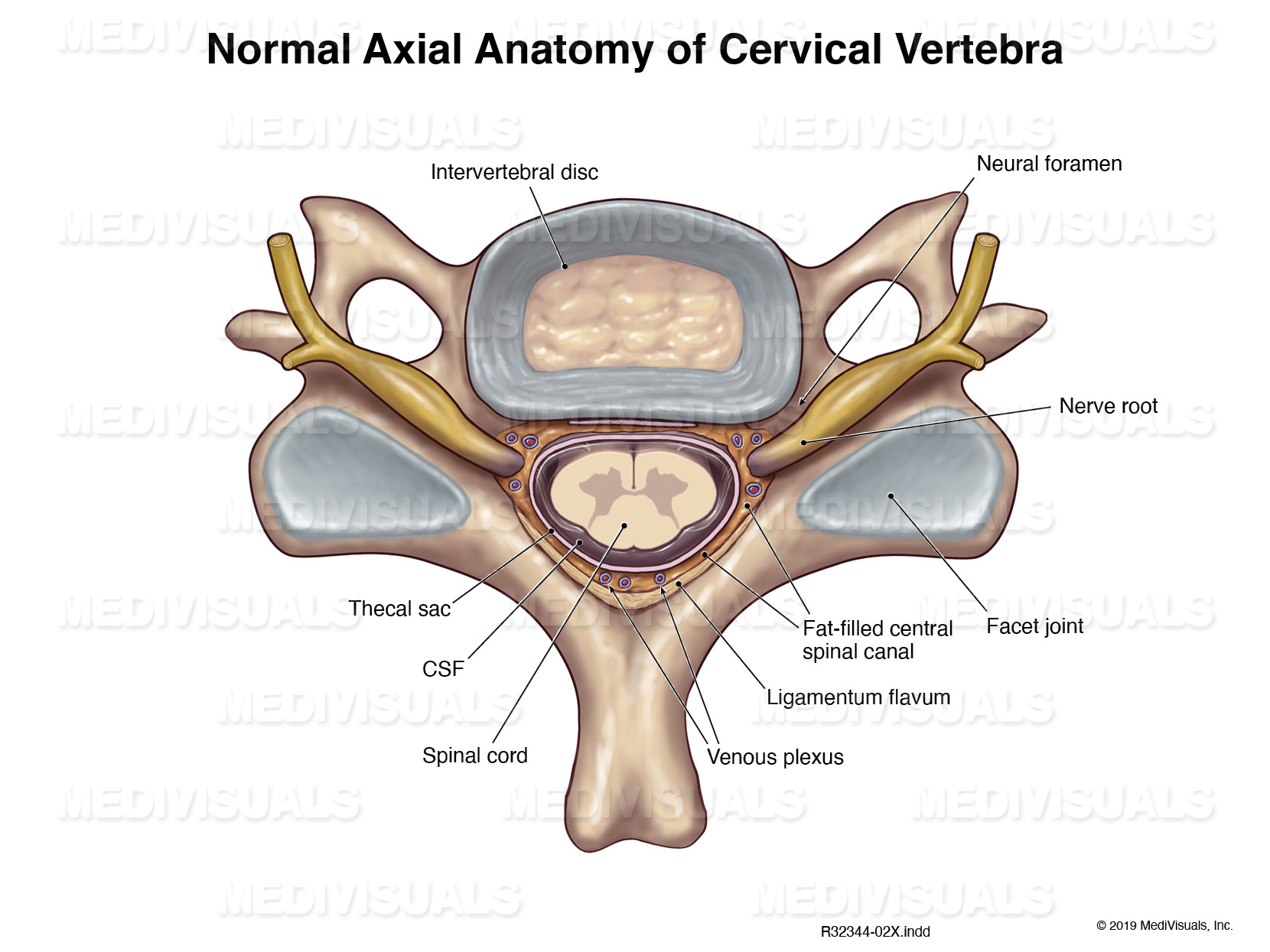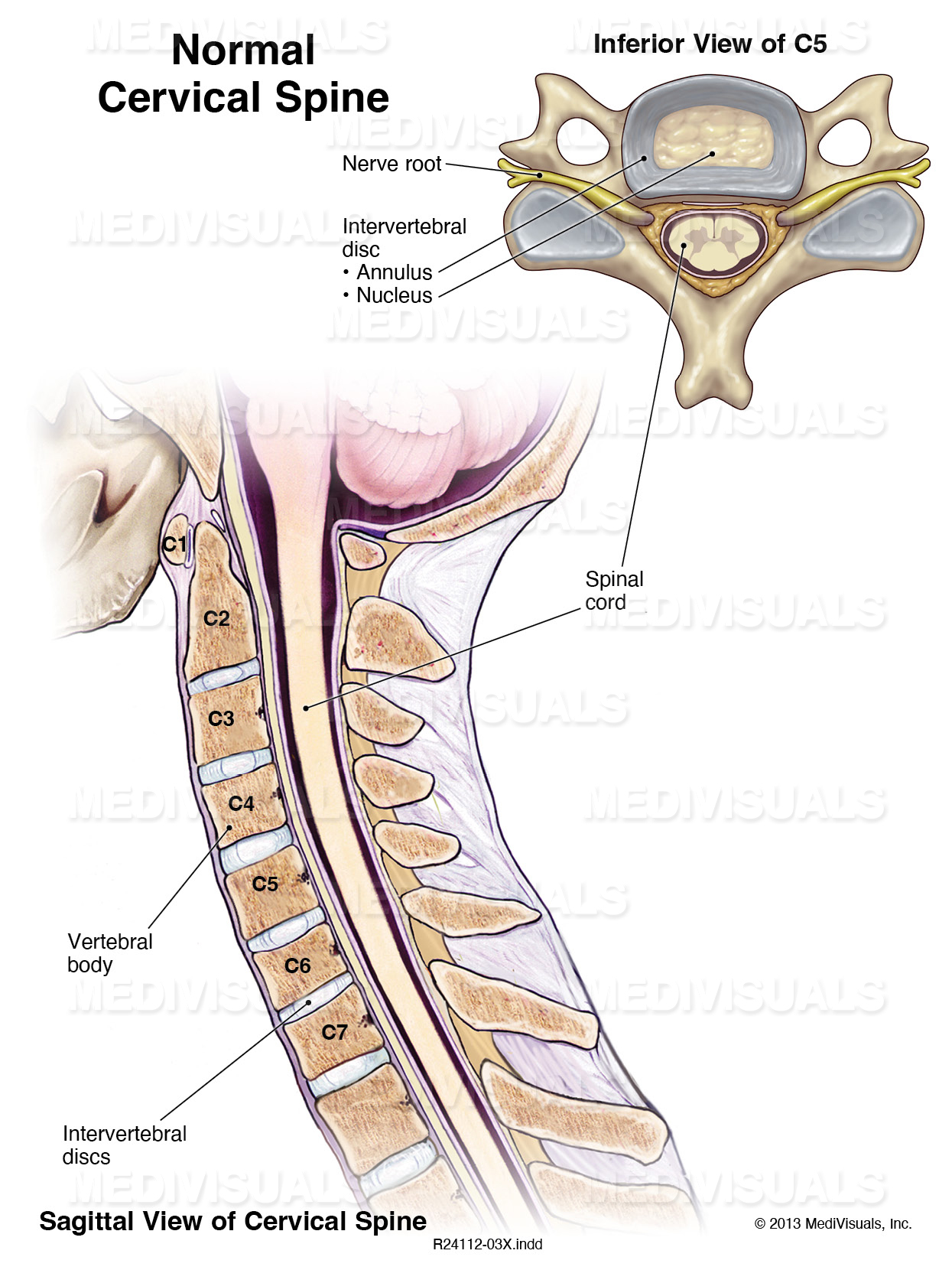LET OUR VIRGINIA SPINAL CORD INJURY ATTORNEYS HELP YOU MOVE FORWARD
Contact our firm now online or by phone at (804) 644-1400 to schedule a free case evaluation with our Virginia Spinal Cord Injury attorneys.
Spinal Cord Injury Lawyer, Richmond VA
The brain and spinal cord make up the most complex central nervous system (CNS) on the planet, and humans have the most advanced CNS. The spinal cord carries messages from our brain to the rest of the body through a complex network of nerve fibers. These messages are responsible for all our motor, sensory, and automatic body functions. Because of this intricate, essential system, injuries to the spinal cord can be catastrophic.
At Cantor Grana Buckner Bucci, we understand that when spinal cord injuries happen, they can have devastating effects on individuals and their families. That is why our legal team is committed to getting fair compensation for our clients who have suffered one of these terrible, life-changing injuries due to someone else’s negligence.
If you’ve suffered a debilitating injury to your spinal cord, contact our attorneys today for a free consultation of your case. We will resolutely fight for your financial justice and peace of mind. If an insurance company refuses to provide you with the compensation you deserve, we have the resources, knowledge, experience, and proven track record necessary to fight for you and obtain just compensation for you.
What Is A Spinal Cord Injury?
A spinal cord injury (SCI) is damage to the bundle of cells and nerves that sends and receives signals from the brain to and from the rest of the body.

The spinal cord is protected by tissue and bones called vertebra. Most spinal cord injuries come from a sudden, traumatic blow to the vertebrae (more than one vertebra). The bones then damage the spinal cord and its nerves; in rare instances, an injury can completely sever the spinal cord.
This damage can cause temporary or permanent changes in
- Breathing
- Heart rate
- Movement
- Reflexes
- Sensations
The extent of the damage depends on where along the spinal cord the injury occurs and the severity of the injury. It can damage a few, many, or all the nerve cells at the site of injury. An almost complete recovery is possible for injuries with little to no nerve cell death.
An injury higher on the spinal cord can cause paralysis in most of the body and affect all limbs (tetra- or quadriplegia). A lower injury to the spinal cord may cause paralysis affecting your legs and lower body (paraplegia).
A spinal cord injury isn’t the same as a back injury. Back injuries may damage bones or soft tissues in the spine, but they don’t affect the spinal cord.
What Does the Spinal Cord Look Like?
The human adult spinal cord is about 18” long and runs from the brain to the lower back. It sits inside the spinal column, which surrounds and protects the spinal cord, and is made up of 33 rings of bone (vertebrae) and pads of semi-rigid cartilage (discs).

Thirty-one sets of nerves branch out from it to control all voluntary movement below the head. These nerves also control the sensory functions of touch, pressure, temperature, and pain. They also control several automatic things the body does; called autonomic functions, they include things like heart rate, breathing, and blood pressure.
Your spine has several sections.
- The cervical spine (C1 to C7) is the section in your neck. It has seven vertebrae and eight spinal nerves that control signals to the back of the head, the neck and shoulders, the arms and hands, and the diaphragm.

- The thoracic spine (T1 to T12) is the upper and mid-back; the nerves control signals to the chest muscles, some muscles of the back and some internal organs, including parts of the abdomen.
- The lumbar spine (L1 to L5) is the low back; the nerves send signals to the lower parts of the abdomen, some muscles of the back, the buttocks, some genitalia, and parts of the leg.
What Kinds of Spinal Cord Injuries Are There?
Healthcare providers use a letter-number combination to classify and talk about sections of the spine and related spinal nerves. For example, the fifth cervical spinal nerve is known as C5; the twelfth thoracic spinal nerve is T12.
Paralysis caused by SCI is either paraplegia or tetraplegia. Paraplegia happens when the injury is between T1 and T-12.
Tetraplegia, also known as quadriplegia, can happen when there’s a complete or incomplete spinal cord injury anywhere between C1 and C8. Tetraplegia is the most common symptom of traumatic spinal cord injury, happening in about 60% of cases. The higher the injury, the more dangerous the effects.

A spinal cord injury can be further classified as complete or incomplete:
- An incomplete injury means the spinal cord is still able to transmit some messages to or from the brain. People with incomplete injuries retain some sensory function and may have some control of muscle activity below the injury site. Among SCI victims, 20% have incomplete paraplegia. These injuries lead to the least severe form of paralysis.
- A complete injury means there is no nerve communication below the injury site, so there is no sensory or motor function below the level of the injury; it affects both sides of the body. In someone with complete paraplegia, the spinal cord has been completely severed, and they have no sensation or movement in the lower part of the body. 12% of SCI victims have complete tetraplegia, which is the most severe version of paralysis.
If you’ve been the victim of an SCI, contact the attorneys at Cantor Grana Buckner Bucci today. We will review your spinal cord injury case free of charge and provide you with honest feedback about your legal options.
If you choose to pursue your case, our lawyers will work diligently to ensure the responsible party is held accountable, and that you receive the compensation you deserve. If your case should go to trial, we’ll be well equipped to help you win.
What Are The Causes and Risks Factors for Spinal Cord Injury?
Spinal cord injuries do not strike all populations equally, unlike some other types of accidents or diseases. While anyone can be the victim of a spinal injury, certain factors may put you at greater risk. According to the National Spinal Cord Injury Statistical Center, these factors include:
- Being a male – Men make up over 78% of SCI victims.
- Being between the ages of 16 and 30 – Younger age groups account 38% of SCI.
- High-risk behavior – Playing sports without proper safety equipment, speeding or driving while intoxicated, and recreational activities carry a higher risk of SCI.
- Alcohol use – Alcohol is a factor in about 25% of spinal injuries.
- Profession –Certain types of work, like construction work, carry a higher risk of SCI; these are usually due to falls from ladders, scaffolding, or other heights.
Spinal cord injuries can result from many different types of accidents; the most common include:
- Motor vehicle accidents – Car and motorcycle accidents account for almost half of new SCIs every year, and they are the leading cause for people under the age of 65.
- Falls – Most SCIs after the age of 65 are caused by falls.
- Acts of Violence – Sadly, the third most common cause of SCIs are acts of violence between people. These are most often gunshot wounds, followed by knife wounds.
- Diving Accidents – Another common cause of SCIs are diving accidents resulting from people diving into too-shallow water.
- Diseases – Cancer, arthritis, and inflammation can damage the spinal cord, as can loss of blood flow to the spinal cord.
- Medical/Surgical Complications – Damage to the spinal cord can result from the adverse effects of medical, surgical, or diagnostic procedures and treatment.
A spinal injury can significantly affect your life. There are instances when someone else might be responsible for an SCI; some examples of circumstances where a liable party may cause or contribute to a traumatic SCI include:
- Car accidents, truck accidents, or motorcycle accidents, if one of the parties was negligent.
- Medical malpractice if a healthcare practitioner was negligent in their care.
- Defective and unsafe products or equipment causing injury.
- Nursing home abuse or negligence leading to injury.
- Unsafe premises leading to a slip and fall accident.
Regardless of the specific type of injury or accident you’ve had, our experienced spinal cord injury lawyers can help you if it was the result of someone else’s negligence. If you’ve been the victim of an SCI, contact us.
If you choose to pursue your case, our lawyers will work diligently to ensure the responsible party is held accountable, and that you receive the compensation you deserve. If your case should go to trial, we’ll be well equipped to help you win.
What Are The Consequences and Complications of Spinal Cord Injuries?
Spinal cord injuries are one of the most devastating and life-altering medical diagnoses. Many aspects of a person’s life are instantly changed when a spinal cord injury occurs. Some effects and symptoms are immediate; others may develop over time.
Some immediate complications are:
- Weakness, incoordination, or paralysis in any part of your body
- Numbness, tingling or loss of sensation in the hands, fingers, feet, or toes.
- Difficulty moving
- Impaired breathing
- Problems regulating blood pressure or body temperature.
- Loss of bladder and bowel control
The long-term consequences of spinal cord injuries can cause:
- Incomplete or complete para- or tetraplegia
- Difficulty breathing, coughing, or clearing secretions from the lungs.
- Loss of or altered sensation, including the ability to feel heat, cold and touch.
- Exaggerated reflex activities or spasms.
- Changes in sexual function, sexual sensitivity, and fertility
- Pain caused by damage to the nerve fibers in your spinal cord.
- Greater risk of blood clots in the lungs and lower legs due to lack of movement
People who have had a spinal cord injury are also more likely to have other complications like:
- Syringomyelia – the development of a fluid-filled cyst within the spinal cord
- Autonomic dysreflexia – a potentially deadly, abnormal overreaction of the autonomic nervous system that can result in increased heart rates, high blood pressure, and excessive sweating.
- Pressure ulcers – bed sores
- Depression
- Cognitive changes
How Do I Recover From a Spinal Cord Injury?
After the critical medical phase of treating the spinal cord injury is over, most people will need some form of inpatient (involving an extended hospital stay) or outpatient rehabilitation. Rehabilitation programs combine exercise, skill-building activities, and counseling to provide social and emotional support, and to increase independence and quality of life.
A rehabilitation team can help the person learn to use assistive devices such as wheelchairs, regain strength and mobility in areas of the body with nerve function, and recover the skills needed for activities of daily living (ADL’s), including dressing, and using the toilet.
The rehabilitation team is led by a doctor specializing in physical medicine and rehabilitation (physiatrist) and often includes:
- Rehabilitation Nurses, who teach patients about their injury and how to recognize dangerous medical situations.
- Occupational Therapists, who first address basic activities of daily living (ADLs) such as getting in and out of bed, grooming, eating, and using the toilet. Later, the focus will switch to instrumental ADL’s, such as cooking, household chores and driving.
- Physical Therapists, who will focus on mobility and exercise programs geared toward strengthening muscles.
- Recreational Therapists, who encourage and support the participation of people with SCI in educational classes, hobbies, special interest groups, family and community events and sports at their level of mobility.
- Rehabilitation Psychologists, who can address behavioral health and mental health concerns that may impede patients achieving their rehabilitation goals.
- Social Workers, who along with the patient and family, focus on life after the hospital, and what support and assistance will be necessary to provide safety and security.
- Vocational Counselors, who assist people with returning to work.
If your spinal cord injury is the result of someone else’s action, you need to seek legal advice as soon as possible. To prove liability for your accident and injuries, your attorney must present enough evidence to prove that another party or parties are liable under the law. At Cantor Grana Buckner Bucci, we have a great deal of experience doing just that. One of our attorneys will work with you and handle every step of the case, allowing you to stay focused on your physical condition and medical treatment plan, lessening your stress.
What Does The Future Hold For Spinal Cord Injury?
Although many parts of our body can heal over time with or without medical intervention, the spinal cord is a more complicated matter. The extensive cell networks of the central nervous system are highly specialized, and they cannot create new cells the way other cells in our bodies do. This means recovering from a traumatic brain injury or SCI is much more difficult.
While scientists have yet to figure out how to repair the CNS, research studies are happening all over the world to make this goal a reality. In the meantime, treatment and rehabilitation can help victims of these injuries lead more fulfilling lives.
Neural prostheses, sometimes called neuroprosthetic devices, can substitute for motor, sensory, or cognitive functions impaired because of damage to the nervous system. A neural prosthesis replaces lost nerve function like how an arm or leg prosthesis replaces a lost limb.
For some patients with spinal cord injury, exoskeletons allow them to carry their weight and walk. Some are powered by batteries; some use EEGs to translate brain activity into motion.
How Much Does a Spinal Cord Injury Cost?
Due to their severity, the costs of treating SCIs are often immense and continue to be significant throughout the victim’s lifetime. In addition to these medical expenses, the injured person may no longer be able to earn a living.
The 2021 SCI Facts and Figures from the National SCI Statistical Center provides a lot of good information and gives an estimate of the lifetime costs of spinal cord injury.
Individuals and families endure enormous hardship when spinal cord injuries occur. Medical bills should be the least of your concerns when you’re recovering from a catastrophic injury. Because every accident and injury are unique, a lawyer cannot precisely predict the damages one may expect to receive. The specific facts and circumstances of the case will influence the money an injured party may recover. This is why you need an experienced spinal injury attorney in your corner. The attorneys at Cantor, Grana, Buckner, & Bucci are ready to provide legal counsel and advise you as to what you may be entitled to.
What Kinds of Damages Can I Pursue After a Spinal Cord Injury?
Your personal injury claim entitles you to compensation for your financial burden and personal suffering. Damages you could claim include:
- Medical bills – past and future medical expenses, including These might include ambulance services, hospital stays, surgery, X-rays, and medication.
- Rehabilitation expenses – physical therapy, occupational therapy, speech therapy, and assistive devices
- Lost wages and future earning potential – loss of income from time away from work or the inability to return to work in the same capacity because of an injury.
- In-home assistance – help with daily tasks like cooking, cleaning, or transportation.
- Home and vehicle modifications – necessary changes for comfort and mobility needs after a spinal cord injury, like ramps, wider doorways, and wheelchair accessible bathrooms.
- Physical pain and suffering – refers to pain in your body that occurs due to injury; the pain may be temporary or chronic. Examples of physical pain and suffering for which you should be compensated in an injury claim can include headaches, neck and/or back pain, and pain from broken or fractured bones.
- Mental anguish and emotional distress – emotional pain you have and will endure because of this injury; examples may include cognitive changes resulting from brain injury, anxiety, anger, grief and/or depression.
- Permanent disability – catastrophic spinal cord injuries that result in impairments and disabilities that last a lifetime.
- Punitive damages – money awarded to punish the responsible party in instances of egregious negligence or malicious intent.
How much Does it cost to hire a lawyer?
Victims of accidents resulting in a spinal cord injury are not left without options. A lawyer is your first defense against financial devastation while recovering from your injuries.
The attorneys with Cantor Grana Buckner and Bucci help investigate all evidence and find options to recover compensation for personal injury cases pertaining to pedestrian accidents. Our law firm runs on a contingency fee basis; that means our law firm will only collect legal fees if we win your case. We understand you may be struggling due to your injuries, which is why we believe in helping our clients win their case before worrying about legal fees.
Wrongful death claims for spinal cord injuries
Tragically, more than 10% of people who sustain a spinal cord injury do not survive the acute injury. While the death rate during the first two years after injury has dropped due to improved critical medical care, those with high cervical injuries, complete injuries or who are older are at greater risk of death during that time. If your loved one lost their life because of an SCI resulting from someone else’s negligence, you are strongly advised to seek legal counsel. You deserve to be compensated for your terrible loss.
Our experienced spinal cord injury lawyers understand how devastating this is to families both personally and financially, and we have extensive experience with wrongful death claims. While nothing can make up for the loss of your loved one, we will compassionately and gently guide you through your claim and secure justice on their behalf.
Seeking Full Compensation From Spinal Cord Injury Damages
Accidents causing spinal cord injuries are always unexpected, and they can have devastating consequences for victims. The impacts can be even more overwhelming when an injury is caused by another’s careless behavior or negligence. Those who have suffered a spinal cord injury due to someone else’s actions deserve to be justly compensated so they can start a new chapter with the resources necessary to rebuild their lives.
If this has happened to you, contact Cantor Grana Buckner Bucci for a free consultation on the value of your injury claim. Our experienced attorneys are more than ready to take on your insurer in a court of law and gather the evidence needed to help ensure you obtain appropriate compensation.
The amount of money you can recover may differ from what you should fully recover, depending on the responsible party’s financial resources or insurance coverage. It also depends on having experienced lawyers who understand how to make the law work in the best interest of their clients, which can make a real difference in the award.
Our attorneys exclusively handle plaintiff’s injury and death cases. The attorney-client relationship is personal to us. We fight for our injured clients, and we will make sure the negligent parties are held accountable in your spinal cord injury claim, so you can focus on recovery and rehabilitation. Contact us today for your free consultation.
Whether you were injured in a car accident, fall, or due to medical malpractice, our dedicated spinal cord injury attorneys are ready to help you today to get the compensation you deserve.

Our Spinal Cord Injury Team
For over 40 years, our attorneys have successfully handled hundreds of complicated spinal cord injury cases. Our attorneys have developed the techniques and strategies best designed to convey to juries the significant impact brain injury has on our clients and the struggles our clients still face. Our Spinal Cord Injury Team is uniquely qualified to assist you with your case because of our vast experience and proven track record.
Anne McDonnell is the newest member of the team. As an Occupational Therapist, she has an intimate understanding of the recovery journey and the challenges faced by those with spinal cord injury. She stays up to date on the latest research and treatment protocols and will support our clients through the litigation and trial experience. As the former Executive Director of the Brain Injury Association of Virginia, Anne is connected to a network of the best physical medicine and rehabilitation experts in the country.
If you’ve suffered a debilitating injury to your spinal cord, contact our spinal cord injury attorneys today for a free consultation of your case. We will resolutely fight for your financial justice and peace of mind. If an insurance company refuses to provide you with the compensation you deserve, we have the knowledge, experience, and proven record to take your case to a jury and obtain just compensation for you.













